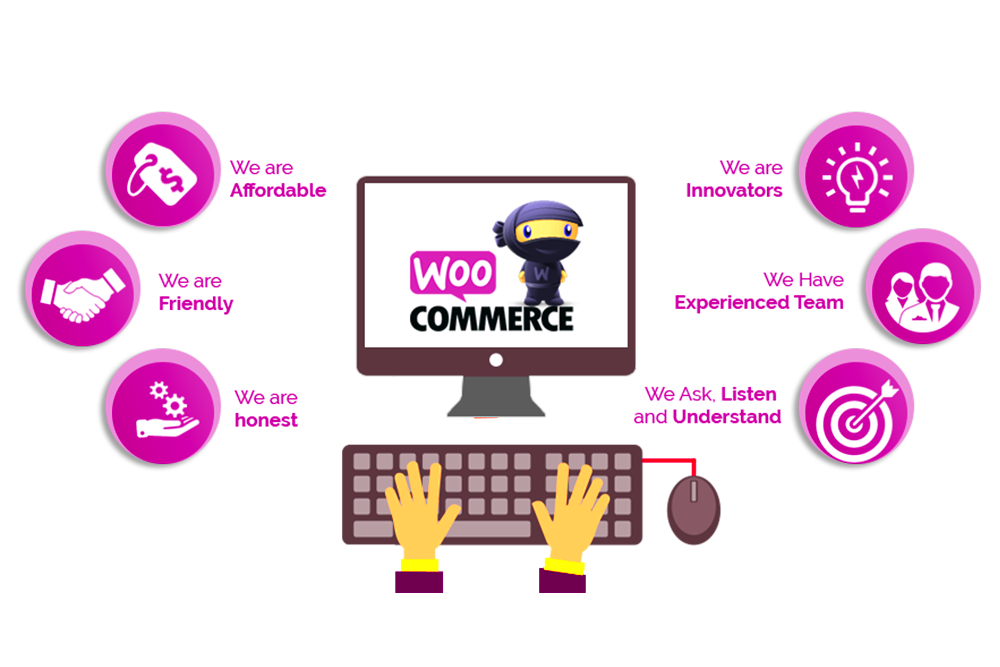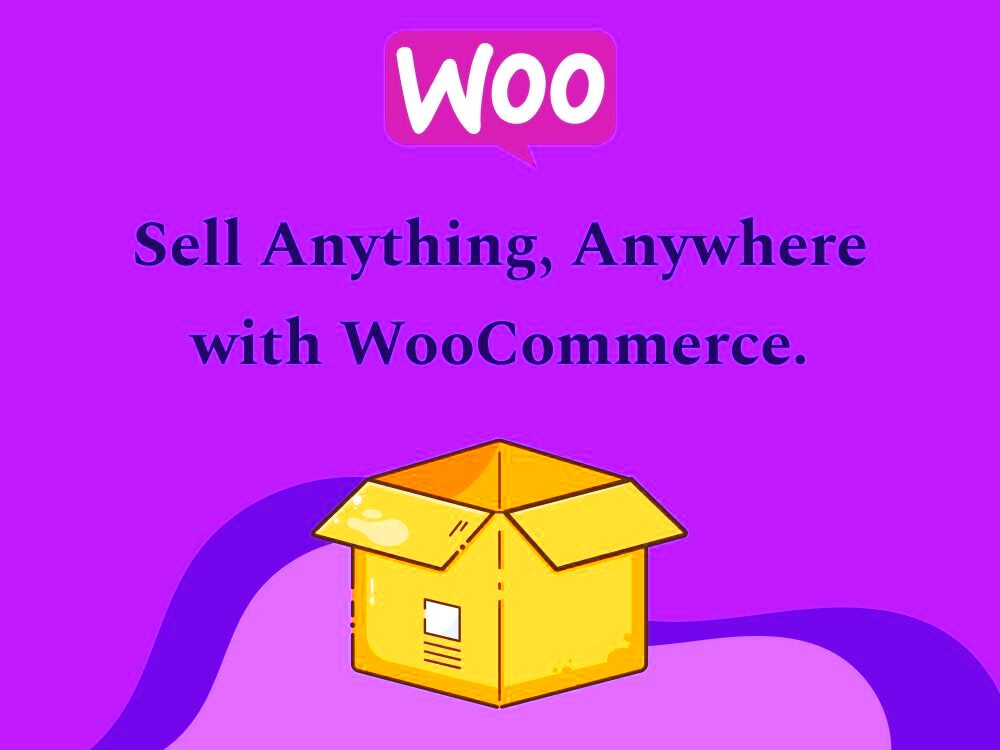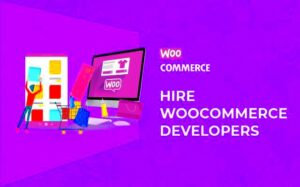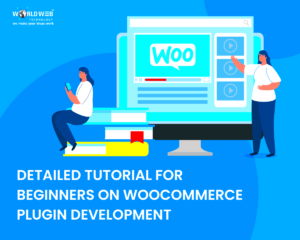WooCommerce has revolutionized the way businesses approach online selling. As a powerful plugin for WordPress, it transforms any standard website into a fully functioning e-commerce store. Developers specializing in WooCommerce create tailored solutions that not only enhance functionality but also improve user experience. This combination of flexibility, scalability, and user-friendliness makes WooCommerce a go-to option for businesses ranging from small startups to large enterprises.
The Importance of Custom Solutions for Online Stores

When it comes to setting up an online store, a one-size-fits-all approach just won’t cut it. Every business has unique needs, and this is where custom solutions come into play:
- Unique Brand Identity: Custom solutions allow businesses to design a store that reflects their brand’s voice and style.
- Enhanced Functionality: With tailored WooCommerce development, you can add features that are specific to your business model, whether it’s subscription services, custom product configurations, or advanced filtering options.
- Improved User Experience: A custom store can enhance navigation and make it easier for customers to find what they need, leading to higher conversion rates.
- Scalability: Custom solutions can be built with future growth in mind, allowing for easy adjustments as your business expands.
- Integration with Other Systems: Tailored development can help integrate your store with various third-party tools, such as CRMs, payment gateways, and inventory management systems.
To sum it up, investing in custom WooCommerce solutions can significantly boost your online presence while catering specifically to your business objectives.
Key Features of WooCommerce
WooCommerce is not just any e-commerce platform; it’s a powerful, flexible solution that can be tailored to meet the unique needs of your online store. Here are some standout features that make WooCommerce a top choice for many businesses:
- User-Friendly Interface: WooCommerce integrates seamlessly with WordPress, allowing you to manage your store intuitively. With just a few clicks, you can add products, set prices, and handle orders without needing extensive technical know-how.
- Flexible Product Options: You can sell physical products, digital downloads, and even subscriptions. WooCommerce supports various product types including simple, grouped, and external/affiliate products.
- Customizable User Experience: Create custom designs and features that reflect your brand. With numerous themes and extensions available, you can personalize your store to attract your target audience.
- Robust Inventory Management: Keep track of stock levels, manage backorders, and set alerts for low inventory. This feature ensures you’re always prepared to meet customer demand.
- Secure Payment Gateways: WooCommerce supports a variety of payment methods, including credit cards, PayPal, and bank transfers, ensuring a smooth and secure checkout experience for your customers.
- SEO-Friendly: WooCommerce comes with built-in SEO features which help improve your site’s visibility on search engines, driving more organic traffic to your store.
- Mobile Responsiveness: With an increasing number of consumers shopping via mobile devices, WooCommerce ensures your store is fully responsive, providing a consistent experience across all platforms.
- Comprehensive Reporting: Track sales, orders, and customer behavior through robust analytics, helping you make informed business decisions.
Benefits of Hiring a Professional WooCommerce Developer
Investing in a professional WooCommerce developer can significantly streamline your e-commerce journey. Here are some compelling reasons why hiring an expert is a wise choice:
- Custom Solutions: A professional developer can create tailor-made solutions that align perfectly with your business goals and customer needs. Whether you require unique features or a bespoke design, an expert can make it happen.
- Time Efficiency: Developing a WooCommerce store can be time-consuming. By hiring a professional, you free up your time to focus on other aspects of your business, knowing that your online store is in good hands.
- Expert Knowledge: WooCommerce developers are well-versed in the platform’s intricacies. They can navigate potential challenges and implement industry best practices, ensuring your store functions smoothly.
- Optimization for Performance: A skilled developer knows how to optimize your store for speed and performance. This means a faster loading time, enhanced user experience, and reduced bounce rate, all leading to higher conversions.
- SEO Implementation: A professional can help you set up your store with SEO in mind from the start. This includes optimizing product pages, site structure, and metadata to increase your visibility online.
- Ongoing Support and Maintenance: After your store goes live, you’ll need regular maintenance and updates. A reliable developer provides ongoing support, ensuring your website runs smoothly as technology evolves.
- Secure Transactions: Security is paramount in e-commerce. A professional developer ensures that your site meets all security standards, safeguarding customer data and building trust in your brand.
- Integration With Other Tools: Whether it’s accounting software, email marketing platforms, or inventory systems, a professional can help integrate various tools to create a seamless operational flow.
Understanding Your Business Needs
When it comes to developing a successful WooCommerce store, the first step is truly understanding your business needs. This means diving deep into your industry, target audience, and specific objectives. Just like any great recipe, you need the right ingredients to cook up a website that not only looks good but also performs exceptionally well.
Consider the following aspects when assessing your business needs:
- Target Audience: Who are your customers? What are their preferences and shopping behaviors? Knowing your audience helps tailor the user experience to suit their needs.
- Product Offering: What are you selling? Are your products digital or physical? This distinction impacts how your store needs to be structured.
- Budget and Resources: Have a clear idea of how much you’re willing to invest in your website, both in terms of finance and time. The more upfront clarity you have, the smoother the process will be.
- Growth Potential: Consider your long-term goals. Are you looking to expand your product lines or enter new markets? Your WooCommerce site should be adaptable to future needs.
Capturing the essence of your business in your online store is crucial. By understanding these elements, you set a solid foundation for a customized WooCommerce solution that resonates with your brand identity and meets your customers’ expectations.
Custom Themes and Designs for Your WooCommerce Store
One of the standout features of WooCommerce is its flexibility, allowing store owners to create custom themes and designs that reflect their unique brand identity. A well-designed website isn’t just about aesthetics; it’s about creating an engaging shopping experience that resonates with your customers. Let’s explore how custom themes can elevate your store.
Here are some key benefits of implementing custom themes:
- Brand Identity: Your website is often the first point of contact with customers. A custom theme enables you to showcase your brand’s personality, ensuring that your store stands out in a crowded marketplace.
- User Experience: Tailored designs can improve navigation and overall user experience. Think about intuitive layouts and strategically placed calls-to-action that guide users seamlessly through their shopping journey.
- Mobile Responsiveness: With a significant amount of shopping done on mobile devices, custom themes can be specifically designed to provide a fantastic mobile experience, adapting smoothly to various screen sizes.
- SEO Optimization: Custom designs can be optimized for search engines, helping your store gain visibility. Elements like clean coding and strategic placement of keywords can improve your site’s search rankings.
In conclusion, investing in custom themes and designs for your WooCommerce store is not just a nice touch; it’s an essential aspect of appealing to customers and defining your brand. Remember, a beautiful store can attract visitors, but a tailored experience keeps them coming back.
Integrating Payment Gateways and Shipping Solutions
When it comes to running an online store, two critical aspects that can make or break the shopping experience are payment gateways and shipping solutions. Integrating these elements into your WooCommerce site isn’t just beneficial; it’s essential for creating a seamless customer experience that encourages conversions and repeat business.
First, let’s talk about payment gateways. WooCommerce supports a wide variety of payment options like PayPal, Stripe, and Authorize.Net, but the choice doesn’t stop there. Each payment gateway offers different benefits:
- PayPal: Simple to set up, trusted by users, and offers Buyer Protection.
- Stripe: Highly customizable and supports multiple currencies.
- Authorize.Net: Excellent for businesses with high transaction volumes.
Integrating these gateways into your WooCommerce store is straightforward, allowing customers to check out quickly, which increases sales. Make sure to also consider the security aspects of your payment processing. Implement SSL certificates and PCI compliance to protect sensitive data.
Next up is shipping solutions. Customers want to know how much shipping will cost and when their orders will arrive. WooCommerce allows you to set up various shipping options, such as:
- Flat Rate: A fixed shipping cost that is simple to manage.
- Free Shipping: A great way to encourage larger orders.
- Real-Time Rates: Automatic calculations based on buyer’s location and package size.
Pair your payment integration with competitive shipping solutions, and you create a smooth path from cart to checkout, enhancing customer satisfaction and boosting your bottom line.
Optimizing WooCommerce for SEO
In a saturated online market, standing out is crucial, and that’s where Search Engine Optimization (SEO) comes into play. Optimizing your WooCommerce store for SEO can significantly boost your visibility on search engines, driving organic traffic that converts into sales.
Start with keyword research. Understanding what terms your potential customers are searching for is foundational. Use tools like SEMrush, Ahrefs, or even Google Keyword Planner to find relevant keywords related to your products. Once you’ve narrowed down your list, incorporate these keywords naturally into:
- Product Titles: Use clear, descriptive titles that can easily be found.
- Product Descriptions: Write unique descriptions that not only sell but also inform.
- Meta Descriptions: Compelling meta descriptions improve click-through rates.
Next, don’t overlook the importance of quality images. Images need alt text for accessibility and SEO purposes. This simple step can help search engines better understand your content and lead to increased visibility in image searches.
Moreover, consider implementing an XML sitemap. This helps search engines navigate your site and index your pages more efficiently. Many SEO plugins for WooCommerce, like Yoast SEO, can generate sitemaps automatically.
Lastly, ensure your WooCommerce store is mobile-friendly. With an increasing number of customers shopping on mobile devices, having a responsive design is paramount. Google considers mobile usability as a ranking factor, so this can have a significant impact on your search visibility.
With these SEO strategies, you’re not just setting your WooCommerce store up for success; you’re laying a solid foundation for sustainable growth in the future.
9. Maintaining and Updating Your WooCommerce Store
Keeping your WooCommerce store running smoothly is crucial for your business’s success. Regular maintenance and updates ensure that your site remains secure, performs optimally, and provides a seamless shopping experience for your customers. Here’s what you need to focus on:
- Regular Backups: Schedule regular backups to prevent data loss. Use plugins like UpdraftPlus or BackupBuddy to automate this process.
- Update Plugins and Themes: Ensuring that your WooCommerce plugins and themes are up to date closes security vulnerabilities and may introduce new features. Set reminders to check for updates weekly.
- Monitor Performance: Use tools like Google PageSpeed Insights to analyze your site’s performance. Identifying slow-loading pages can help you optimize the shopping experience.
- Check for Broken Links: Use tools like Broken Link Checker to find and fix any broken links on your site. Broken links can frustrate customers and hurt your SEO.
- Test Checkout Process: Regularly test your checkout process to ensure it remains smooth and user-friendly. Any hiccups can lead to abandoned carts.
- Security Scans: Implement security measures like regular scans for malware and vulnerabilities. Use plugins such as Wordfence or Sucuri for added protection.
- Performance Optimization: Regularly clear your site’s cache and optimize your database with plugins like WP-Optimize to maintain fast loading times.
In essence, consistent maintenance and timely updates are non-negotiable if you want your WooCommerce store to thrive. Think of it like giving your store a routine check-up—better safe than sorry!
10. Case Studies: Successful Custom WooCommerce Projects
Nothing showcases the power of WooCommerce better than real-life success stories. Let’s dive into a few case studies that highlight how custom WooCommerce projects have transformed businesses:
| Business Name | Challenge | Solution | Results |
|---|---|---|---|
| FashionBoutique | Outdated website with low conversions. | Custom theme design and streamlined checkout process. | Increased conversion rates by 50% within three months. |
| GourmetGrocer | High cart abandonment rates. | Personalized user experience and urgent messaging. | Reduced abandonment rates by 30% and boosted sales. |
| TechShop | Complex product variations confusion. | Custom product configurator. | Increased average order value by 25%. |
These case studies illustrate just how powerful custom solutions can be. By tailoring WooCommerce to fit specific business needs, these companies not only solved their challenges but also reaped significant rewards. Whether it’s improving user experience, enhancing functionality, or driving sales, the right custom WooCommerce project can set your store on a path to success. If you find yourself facing similar challenges, take inspiration from these examples and explore what a custom approach could do for your store!
Conclusion: Choosing the Right WooCommerce Developer
When it comes to establishing an online store, selecting the right WooCommerce developer is crucial for your success. WooCommerce is a powerful eCommerce platform, but without an expert developer, you may struggle to fully leverage its capabilities. Here are some key considerations to help you make the right choice:
- Experience and Expertise: Look for developers who have a proven track record with WooCommerce. Check their portfolio for previous projects similar to yours.
- Custom Solutions: Ensure that the developer specializes in creating custom store solutions. A one-size-fits-all approach may not suit your unique business needs.
- Client Reviews: Read testimonials and reviews from previous clients to gauge satisfaction levels and the developer’s reliability.
- Technical Skills: Familiarity with the latest version of WooCommerce, WordPress, and relevant programming languages (like PHP and JavaScript) is essential.
- Communication: Ensure effective communication and support during and after development. A developer who listens to your needs can translate your vision into reality.
- Cost vs. Value: While cost is a factor, prioritize value. A slightly higher investment can lead to better quality and ultimately more revenue for your business.
In summary, investing time in choosing the right WooCommerce developer can yield significant returns. By focusing on experience, customization, client feedback, technical skills, communication, and value, you set the foundation for a successful online store. Don’t rush the decision; rather, take the time to find a developer who aligns with your business goals and vision.



